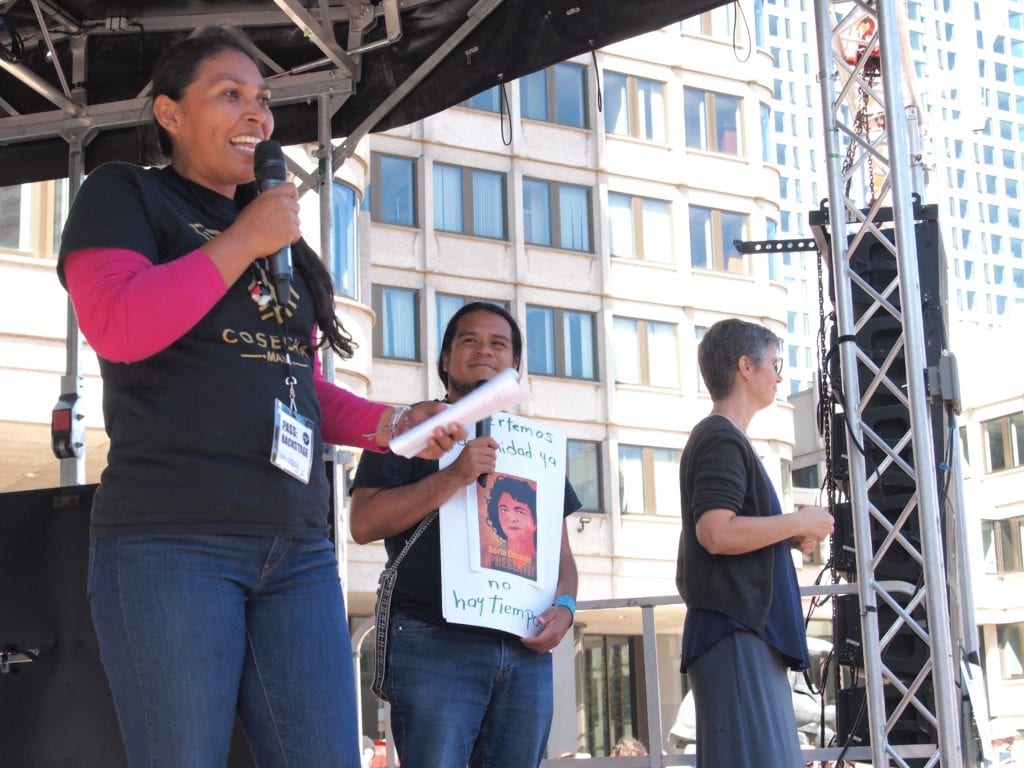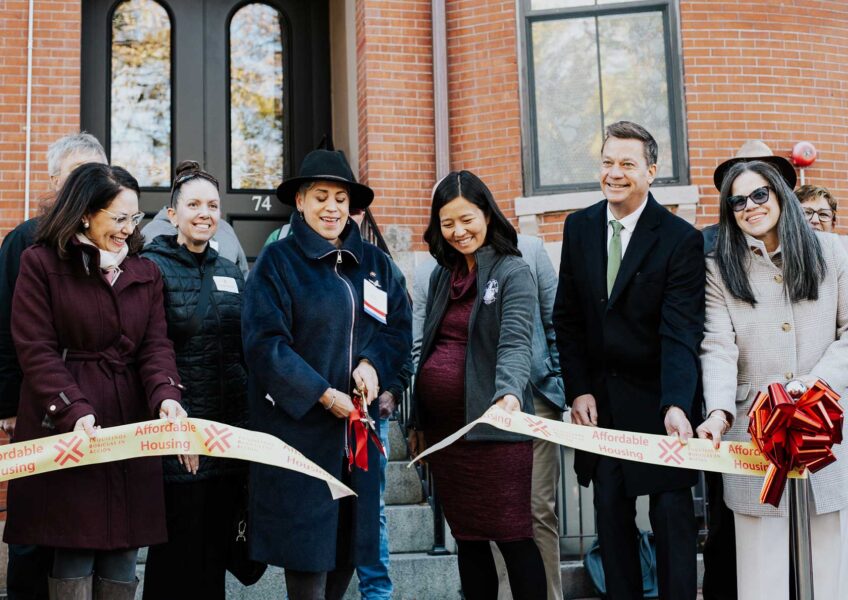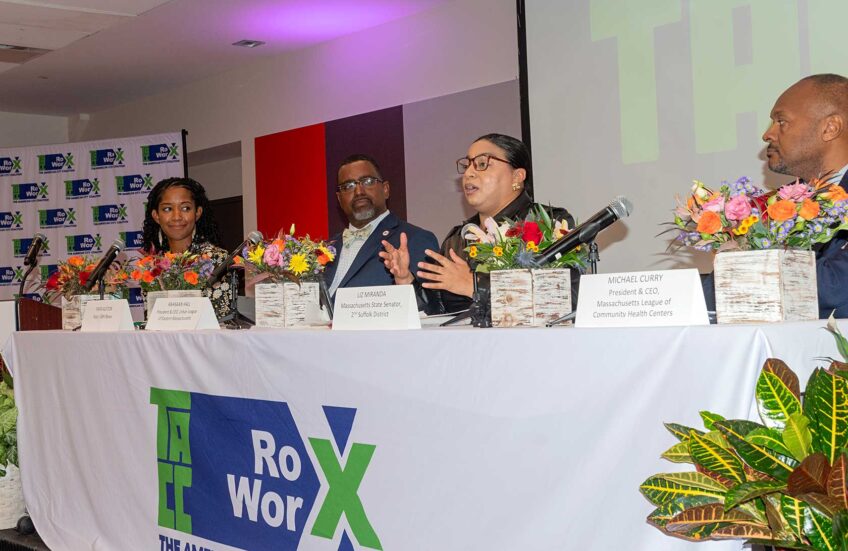
For years, Irma Lemus fought mining companies, hydroelectric power companies and palm oil plantations that encroached on the land in her community in Honduras. She received death threats, 32 other environmental activists were imprisoned and several were assassinated.
Lemus almost ended up among the latter category in 2015, when a car deliberately rammed her and another activist while they were riding a motorcycle.
This year, Lemus emigrated to the United States, settling in Boston, but her advocacy on behalf of Hondurans land rights has not abated.
Friday, she took to the stage on City Hall Plaza as part of the Global Climate Strike, addressing a crowd of thousands made up largely of student activists.
Holding a photograph of Berta Cáceres, a member of the Civic Council of Popular Indigenous Organizations who was assassinated in 2016, Lemus shared the story of her friend who fought to protect the land and rivers along the Atlantic coast of Honduras.
“They murdered her because she protected the water in the town that I come from,” she said of Cáceres, speaking through a translator. “Honduras has an enormous amount of resources. The activists who protect Honduras are facing repression. Their only crime was to defend the water, to protect the earth, to protect the life of this whole planet.”
The north-facing Atlantic coast of Honduras is home to indigenous tribes such as the Miskito and the Garifuna people — who are descendants of Africans who escaped slavery and Carib and Arawak indigenous tribes.
In recent decades, international mining companies and other large concerns have put pressure on the Miskito and Garifuna communities, often intimidating and killing activists who have stood in the way of their projects, according to Sendy Suazo, a researcher born in Puerto Cortez, Honduras on the Atlantic coast.
“It’s very dangerous for anyone dealing with environmental issues,” she said in a Banner interview.
Activists in the Miskito and Garifuna communities have been at the forefront of fighting the mining companies and corporations that are seeking to tap the natural resources in the Atlantic coast area, often making them the target of violent repression.
Since democratically-elected president Manuel Zelaya was overthrown in a 2009 coup and a U.S.-supported military government took power, pressure from corporations and drug cartels has increased along the Atlantic coast.
“Economic hit men are coming to Honduras to make money,” Suazo said. “They’re not concerned about the long-term effects on the environment.”
Last week, at the same climate strikes were being planned and held around the world, five activists in the Atlantic coast region were killed, Suazo said.
In addition to the corporations looking to cash in on the north coast, drug cartels have increasingly used the area as a transshipment point. Last Friday, a federal court in New York released evidence from a U.S. attorney that narcotics trafficker Antonio Hernandez used his connections to his brother, Honduran President Juan Orlando Hernandez, to further his criminal enterprise. The president is listed as a co-conspirator in the money laundering and drug trafficking case against his brother.
At Friday’s rally in Boston, Lemus said she remains hopeful in spite of the repression she has faced, and sounded a defiant note in speaking to the crowd.
“The political system — the capitalist, patriarchal, neoliberal system — hasn’t gotten the pleasure of killing me yet,” she said.
Lemus said many of her neighbors in Honduras have emigrated to the United States and Europe to escape state-sanctioned violence.
“That’s why there are so many people fleeing our country,” she said. “It’s not because of gangs. It’s because we have a government that is giving our territory away.”






